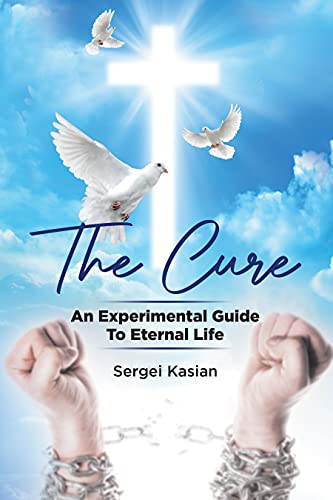The quest for a spiritual life in an atheistic, socialist society lies at the heart of THE CURE: An Experimental Guide To Eternal Life by Sergei Kasian. Can a man lead a pure life, devoted only to God? And what is the cost of such freedom? In THE CURE, Ken Kesey’s One Flew Over The Cuckoo’s Nest rubs shoulders with Dostoyevski’s Crime and Punishment. Our hero, Stephan Korsan, is on a spiritual quest, a tough go in Russia during the mid-1980s when religious worship was all but banned. Stephan finds fulfillment in the International Society of Krishna Consciousness, but this upstart religion threatens the already crumbling political structure of the Soviet Union. The KBG targets Hare Krishna members, including Stephan, convincing his mother that she should commit her son to a psychiatric hospital. These facilities were akin to torture chambers, staffed by sadists and criminals.
The real-life suffering of Hare Krishna members during the final days of the USSR inspired THE CURE. The KGB forced dozens of young worshippers into prisons, labor camps, and mental hospitals. Many died there. Kasian’s story is vital as a fictional chronicle of a very real and underreported human rights atrocity. But the author’s tendency to tell instead of show hurts the novel’s overall pacing and keeps readers at a distance. Stephan suffers an incalculable number of torments inside Russia’s psychiatric hospitals. Kasian doesn’t need to say, “Stephen was scared and paranoid.” That tension should come through on the page but doesn’t. THE CURE is also guilty of another common pitfall in fiction with a strong social message. Characters deliver sermons and information-heavy monologues instead of engaging in everyday conversations. The dialogue feels unnatural, and the prose gets clunky at times. THE CURE begins and ends with Kasian “breaking the fourth wall,” directly imploring readers to study the bible. These impassioned religious pleas undermine Kasian’s fictional story. Is THE CURE a novel or a spiritual manifesto? The answer seems to be that the book is a not-so-subtle primer on the Bhagavad-gita and living life according to Hindu and Christian principles. Kasian aims high, blending lofty literary sources and bible verses with an anti-communist message.
While Sergei Kasian’s THE CURE doesn’t always hit the mark, it is still a necessary and compelling novel inspired by the real-life persecution of religious followers in the waning days of the Soviet Union.
~Rob Errera for IndieReader

